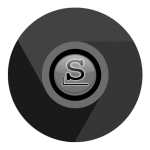 Chromium 121 sources were released yesterday, and as much as I would like to tell you that the Slackware packages are ready, in fact it appears that you will have to wait for them for an unspecified amount of time.
Chromium 121 sources were released yesterday, and as much as I would like to tell you that the Slackware packages are ready, in fact it appears that you will have to wait for them for an unspecified amount of time.
I found out that the build of Chromium now needs Google’s custom version of the Rust compiler, next to Google’s custom version of the Clang compiler. Those Rust and Clang versions are intertwined and Google advises packagers to simply use their own pre-compiled binaries which they provide for download.
You guessed… those binaries are not available for a 32bit OS. Nothing new, and it is for that exact reason that as part of compiling Chromium for Slackware, the complete LLVM toolchain is built from Google’s sources first. For every package I release. Tweaking the LLVM/Clang compilation so that they work for 32bit Slackware took a lot of time – after all, no one at Google tests their sources for 32bit build compatibility. So I patch here and there and every time feel lucky that it still works.
Until today, when I ran into the new Rust requirement. And after the umptiest iteration of a Chromium package build using a variety of changing options, I still fail to even start compiling a Rust binary.
I am taking a break from this to consider my options. My aim is to keep supporting the 32bit Slackware package. I just need to figure out how Google messed this up again and find a way around it. In the meantime, don’t hold your breath – I only have a few hours each evening to do the troubleshooting. A new package will appear when it’s ready.
All the best, Eric
Update 2024-jan-29: I have buillt 64bit packages for Chromium (also -ungoogled) version 121.0.6167.85 and uploaded them to my repository.
Note that I can not currently compile their 32bit versions because until now I have not been successful in building Google’s custom llvm and rust from source. I had to revert to downloading and using Google’s pre-compiled binaries which they only supply for 64bit systems.
I am still determined to find a way to compile these llvm and rust compilers from Google’s own sources. But I have no ETA on that unfortunately.
 The latest release of the Chromium source code (version 126.0.6478.182 was made available on July 16th) addresses several vulnerabilities as usual, some of which are rated as ‘High’ but none ‘Critical’ and also no new 0-days are reported.
The latest release of the Chromium source code (version 126.0.6478.182 was made available on July 16th) addresses several vulnerabilities as usual, some of which are rated as ‘High’ but none ‘Critical’ and also no new 0-days are reported. I am slowly transitioning back from being a caregiver for my mother (which absorbed me completely for 10 months) to a life where I have time and energy in the evenings to hack on Slackware again. You will soon find the next installment in the Slackware Cloud Server series here on the blog – an article dedicated to building a Docker stack as cloud storage backend for the open source Ente Auth 2-factor authentication app.
I am slowly transitioning back from being a caregiver for my mother (which absorbed me completely for 10 months) to a life where I have time and energy in the evenings to hack on Slackware again. You will soon find the next installment in the Slackware Cloud Server series here on the blog – an article dedicated to building a Docker stack as cloud storage backend for the open source Ente Auth 2-factor authentication app. Chromium 121
Chromium 121
Recent comments